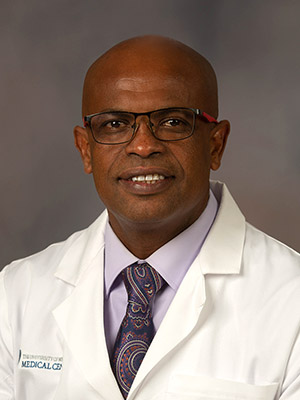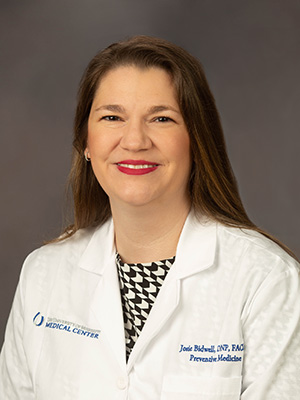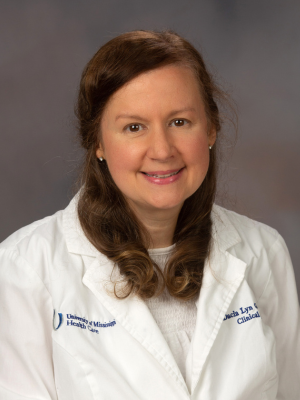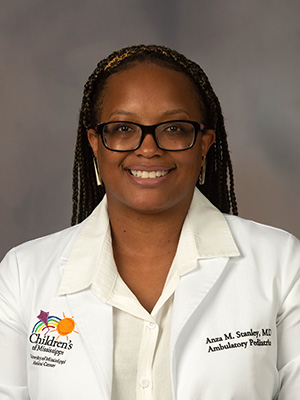Here’s why you should eat your vitamins instead of taking them
If you’re among the more than 57 percent of adults who take multivitamins and other supplements, you may be wasting your money.
With more varieties than ever before – including gummy, chewable, liquid, effervescent and vegan – the sales of all dietary supplements reached about $56 billion in 2020, according to the National Institutes of Health. Those containing vitamins and/or minerals accounted for $21.2 billion of that; multivitamins and multivitamin-minerals made up $8 billion.
Multivitamin-minerals – supplements that contain three or more vitamins and at least one mineral – are the most popular, according to the National Health and Nutrition Examination Survey, followed by Vitamin D and omega-3 fatty acid supplements.
So, should you be taking them, too?

“The simple answer is no,” said Dr. Abedulnaasseer Mohammedelamien, assistant professor of preventive medicine. “There is no evidence to support use, it is costly, gives a false impression of health security, may interact with other drugs and potentially can cause toxicity and harm.”
Mohammedelamien cites the U.S. Preventive Service Task Force, an independent panel of experts in disease prevention and evidence-based medicine, which found “insufficient” evidence to determine the benefits versus risks of using single or multivitamin supplements in preventing the leading causes of death in the United States -- cardiovascular and cancer.
Plus, he added, supplements don’t reduce risks of infections, mental decline or memory loss in elderly patients.
Except for pregnant women – who need extra folic acid – the average person who eats a balanced diet that includes a variety of plant-based foods and clean water should be getting enough vitamins and minerals, said Mohammedelamien.

“The best way to get vitamins and minerals is to eat them,” said Dr. Josie Bidwell, associate professor and lifestyle medicine clinician in the Department of Preventive Medicine. “A supplement contains just the vitamin and/or mineral. When consumed via food, you get the full nutrient package which, depending on the food, includes fiber, protein, healthy fats and complex carbohydrates.”
Consuming “extra” vitamins does not improve overall health, said Bidwell, who often encounters patients who take a multivitamin in addition to multiple single nutrient supplements.
In fact, those extra doses can do more harm than good since excessive amounts of vitamins can accumulate over time and cause toxicity.
So, what about those who don’t “eat the rainbow” and aren’t sure they’re getting enough nutrients from their foods?
“The standard American diet is high in sodium, saturated fat, and refined carbohydrates,” said Bidwell. “As a general rule, these would not be nutrient dense. However, a lot of our packaged foods have been fortified with vitamins and minerals to help meet nutrient gaps through regularly consumed foods.”
For example, cereals are fortified with iron; dairy milk has added vitamin D; and orange juice can have added calcium. “These products help prevent nutrient deficiencies but fail to provide all of the benefits of a well-balanced diet rich in fruits, vegetables, whole grains and lean protein.”
If you think you’re lacking in nutrients, ask your health care provider to run bloodwork to test for deficiencies.

“A perfect example is Vitamin D,” said registered dietician Dacia Breeden. “If you test your level and find that you are low, then only take a Vitamin D supplement for a short period of time.”
“Vitamin deficiencies and in excess both have a peculiar clinical presentation and sometimes can mimic other disease processes,” explained Mohammedelamien. “Finding the root cause of a deficiency helps determine the treatment roadmap, including the route to [manage] the vitamin supplements.”
If you’re deficient in a specific supplement, be sure to follow up with more bloodwork later to ensure your vitamin stores have been replenished and avoid taking any in excess.
Different life stages have specific nutritional requirements that may result in the need for additional supplements.

Dr. Anza Stanley, associate professor of pediatrics, said she and her colleagues provide guidance on nutrition at every wellness visit.
“Parents should focus on ensuring their children are getting a well-balanced diet, but if there is a concern that the need is not being met, they should speak with their child’s primary care physician,” said Stanley.
“My son does not routinely get additional vitamins. As a breastfed infant, we would supplement with Vitamin D until we were able to introduce other vitamin D sources in his diet. He is also a vegetarian, so I make sure the foods he eats contain the vitamins he needs.”
On the other end of the spectrum are the elderly, who may have declining nutrition or medications that impair the absorption of certain nutrients from foods. As a result, they may need additional supplements, but only under the direction of a health care provider, said Bidwell.
Why is there so much confusion surrounding multivitamins? “Because there are certain situations where they are helpful and other situations they are not,” said Breeden.
“So, it is important to consider what the person’s current health situation or nutrition concern is before recommending a multivitamin. I take the view that the sum of nutrients in foods is greater than the isolated parts.
“In addition to vitamins and minerals, [whole plant foods] come packaged with phytochemicals in the perfect ratio of nutrients within plants. So, isolating a single synthetic chemical structure of a vitamin without the entire package of food may be giving individuals a false sense of protection and not actually reap the full benefits of getting nutrients from whole plant foods.”
Mohammedelamien is not surprised by the confusion.
“Many physicians, including myself, have humble knowledge about nutrition,” said Mohammedelamien. “Unfortunately, most, if not all, medical schools’ curricula are deficient in nutritional education.”
That’s an issue highlighted by the American College of Lifestyle Medicine which, in a release noted that though evidence proves the effectiveness of lifestyle medicine in treating and reversing many chronic diseases including obesity, type 2 diabetes and heart disease, most practicing physicians have received little to no education in nutrition.
To combat that deficiency, the Biden administration, during the White House Conference on Hunger, Nutrition and Health in September, announced a $24.1 million investment to offer coursework in lifestyle medicine and food as medicine.
In the ACLM collaboration, 100,000 health care providers working in areas with the highest incidences of diet-related disease will receive 5.5 free hours of continuing medical education credits.
“It gives you objective, tangible information and cuts through the noise,” said Mohammedelamien, who has completed the coursework. “It gives you a smart, actionable, practical plan to benefit the patients.”
Bidwell, already a board-certified diplomat of the ACLM, said the certification not only provides clinicians with focused training in the science of nutrition, but also “how to assess, prescribe, appropriately dose, and partner with patients in treating, preventing, or reversing chronic disease.”
Mohammedelamien, acknowledging the “explosion of conflicting information about nutrition,” said he handles questions from patients about multivitamins on a case-by-case basis.
“Sometimes it may sound logical to take vitamins, but the evidence shows a different result.”
The above article appears in CONSULT, UMMC’s monthly e-newsletter sharing news about cutting-edge clinical and health science education advances and innovative biomedical research at the Medical Center and giving you tips and suggestions on how you and the people you love can live a healthier life. Click here and enter your email address to receive CONSULT free of charge. You may cancel at any time.



